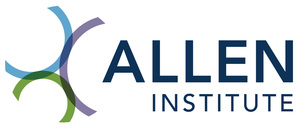The Paul G. Allen Frontiers Group Announces Allen Discovery Center at Boston Children's Hospital and Harvard Medical School
$10 million grant will create Center to understand how the human brain evolved and what makes it unique
SEATTLE, July 5, 2017 /PRNewswire-USNewswire/ -- The Paul G. Allen Frontiers Group announced today the creation of an Allen Discovery Center for Human Brain Evolution at Boston Children's Hospital and Harvard Medical School, to be led by Christopher A. Walsh, M.D., Ph.D. The new Allen Discovery Center will use a multidisciplinary approach to understand when and how the uniquely human brain evolved, and identify the roles of genes involved in that evolution. The Center is funded at $10 million over four years, with the potential for $30 million over eight years.
The human brain is the product of remarkable evolutionary changes that have resulted in our ability to use language, create complex societies, pursue science and create art. While we have some understanding of the genes that separate all modern humans from other primates, none of those genes can explain changes in behavior that took place in the last 50,000 years, meaning there is no simple genetic "switch" that can explain key aspects of brain evolution.
The Allen Discovery Center for Human Brain Evolution will take a multidisciplinary approach to this question, with the goals of identifying key genes required for human brain evolution, analyzing their roles in human behavior and cognition, and studying their functions to discover evolutionary mechanisms. Joining Walsh, who will be leading the center, are co-leads Michael Greenberg, Ph.D., and David E. Reich, Ph.D., at Harvard Medical School and the Howard Hughes Medical Institute, bringing together expertise in neuronal molecular biology, human evolution, genetics and genomics.
"To understand when and how our modern brains evolved, we need to take a multi-pronged approach that will reflect how evolution works in nature, and also identifies how experience and environment affect the genes that gave rise to modern human behavior," says Walsh, Chief of the Division of Genetics and Genomics at Boston Children's Hospital and a Howard Hughes Medical Institute Investigator. "Understanding how the human brain evolved and cataloging the genes involved in that evolution will shed an exciting light on what makes humans distinct, and may also shed light on brain disorders."
"As a species, we have long sought to understand how our amazing capacities for art, science and culture emerged," says Tom Skalak, Ph.D., Executive Director of The Paul G. Allen Frontiers Group. "This Allen Discovery Center is using a combination of pioneering new techniques and interdisciplinary ways of thinking to make progress toward answering questions that lie at the heart of our humanity."
"Understanding the evolutionary origins of the human brain is one of the most fascinating questions in biology, and this Allen Discovery Center is poised to make significant inroads to answering it," says David Williams, M.D., Senior Vice President and Chief Scientific Officer of Boston Children's Hospital. "We are glad for the support of The Paul G. Allen Frontiers Group to establish this Center and recognize the work and leadership of the team at Boston Children's Hospital and Harvard Medical School."
"Unraveling the mysteries of the human brain will propel our understanding of brain development, brain evolution and human behavior," says George Q. Daley, M.D., Ph.D., Dean of Harvard Medical School. "It also will help us understand what makes us unique as a species. The research conducted by these three remarkable scientists spans the gamut from molecule to organism to system, and underscores the cross-pollination among basic, translational and clinical discovery as well as across neurobiology, genetics, evolutionary biology and neurology."
The work at the Allen Discovery Center will focus in part on the complex interplay between genetics and sensory experiences, which shapes brain development, learning, memory and behavior.
"The launch of this center is a wonderful opportunity for three laboratories that have been working independently to come together and study the genetic, molecular, and evolutionary forces that have given rise to the spectacular capacities of the human brain," says Greenberg.
"The generous support from The Paul G. Allen Frontiers Group is profoundly exciting," says Reich. "It will allow us to use ancient DNA analysis to track changes in the frequency of genetic mutations over time, which will in turn illuminate our understanding of the nature of human adaptation."
Allen Discovery Centers are a new form of funding for leadership-driven, compass-guided research at the frontier of science. Having a comprehensive understanding of human brain evolution would enable researchers to hone in deeply on the characteristics and genes that underlie key aspects of human behavior, from language to consciousness and beyond.
About The Paul G. Allen Frontiers Group
The Paul G. Allen Frontiers Group is dedicated to exploring the landscape of science to identify and fund pioneers with ideas that will advance knowledge and make the world better. Through continuous dialogue with scientists across the world, The Paul G. Allen Frontiers Group seeks opportunities to expand the boundaries of knowledge and solve important problems. Programs include the Allen Discovery Centers at partner institutions for leadership-driven, compass-guided research, and the Allen Distinguished Investigators for frontier explorations with exceptional creativity and potential impact. The Paul G. Allen Frontiers Group was founded in 2016 by philanthropist and visionary Paul G. Allen, and is a division of the Allen Institute, an independent 501(c)(3) medical research organization. For more information, visit allenfrontiersgroup.org.
Media Contact:
Rob Piercy, Sr. Manager, Media Relations
206.548.8486 | [email protected]
SOURCE The Paul G. Allen Frontiers Group
Related Links
WANT YOUR COMPANY'S NEWS FEATURED ON PRNEWSWIRE.COM?
Newsrooms &
Influencers
Digital Media
Outlets
Journalists
Opted In





Share this article